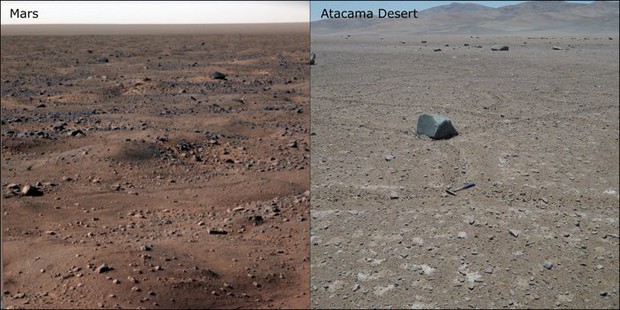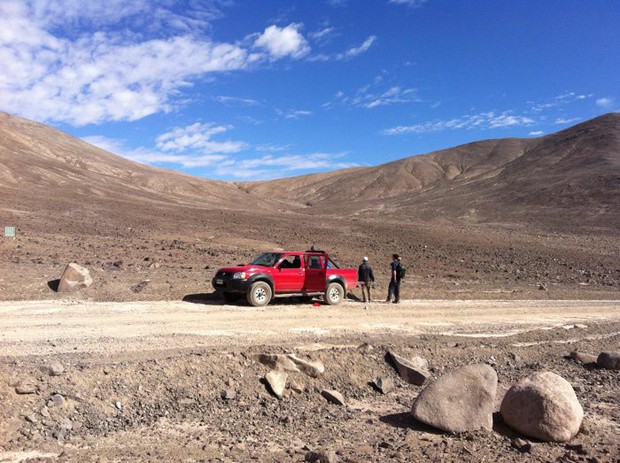Scientists call this a “copy of Mars” and once again give them a belief in so-called “life on Mars”.
However, their beliefs were considerably strengthened. The reason is that on Earth there is a known “copy of Mars” – the Atacama Desert in Chile. And recently, science made a huge discovery: to confirm that life can exist in this place.
The Atacama Desert has the same environment as Mars
The Atacama Desert, located near the southwest coast of South America, is “hell on earth”. It is one of the driest places on the planet, at one point without a single drop of rain for centuries. This is why this desert is considered to be the most similar to the Red Planet.
But for the first time in history, experts observed life in the form of microorganisms proliferating in the middle of the Atacama Basin, and even forming an ecosystem.
“The idea still haunts me, this is a place where people think that nothing exists, and then find out that life grows there”, – said Dirk Schulze-Makuch, expert from the University of Washington State.
“If life can exist in the most horrific places on Earth, chances are it does exist on Mars, which also has similar habitats.”
In fact, this is not the first time that bacteria have been discovered in Atacama. However, previous studies have suggested that life is actually brought from another place by atmospheric phenomena.
But this time around, experts have found evidence that they are native bacteria, or have been “localized” to survive in a harsh environment.
It’s a process to get there. When Schulze-Makuch and his colleagues arrived in Atacama in 2015, rain fell in the desert for the first time in 40 years. After the rain, as expected, they discovered that the bacteria had exploded, but assumed that these bacteria would be gone soon because the climate was too harsh.
It was followed by two expeditions in 2016 and 2017. This time there was no more rain and the signs of life were also disappearing. However, some genetic tests show that the microorganism evolved to exist in this terrible place.
This microbial community lives at a depth of about 1 m. They are able to survive by entering a “postponed” metabolic state, awaiting another scarce water supply in the future. And this possibility is extremely long – up to thousands of years.
“This is the first time we experience life in the Atacama Desert,” said Schulze-Makuch.
“We think they can live for hundreds or even thousands of years in the same habitat we would find on Mars. Then everything multiplies when it rains.”
Of course, finding life in Atacama does not mean that Mars also has life. March is always drier, colder and harder.
But it’s still a hope. Atacama’s starving bacteria are actually the closest we can see to Mars on Earth.
“We always know that there is water in the form of ice on Mars, there is even running water.” – said Schulze-Makuch.
“If life were to ever appear on Mars, we believe there will be microbial strains under the super-arid soil there.”
The research is published in the Proceedings of the National Academy of Sciences (USA).




